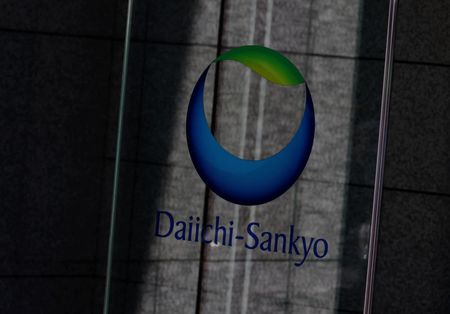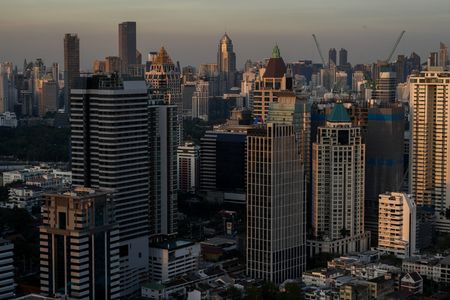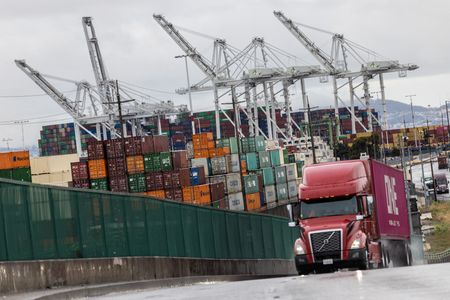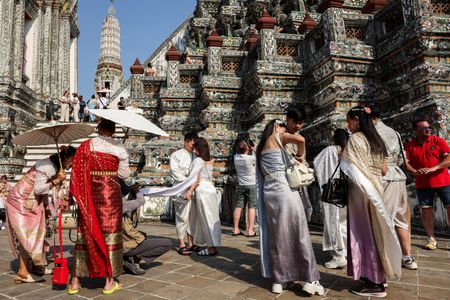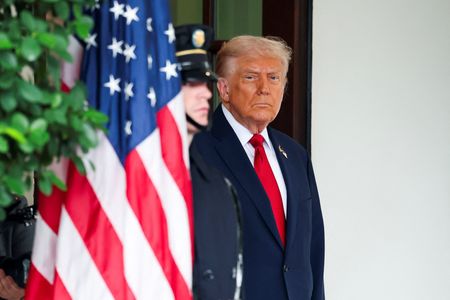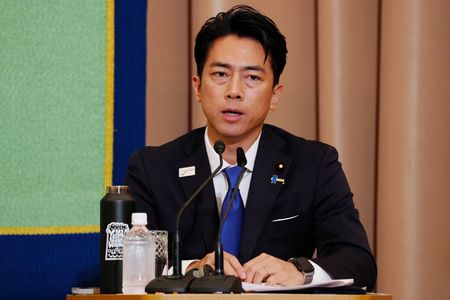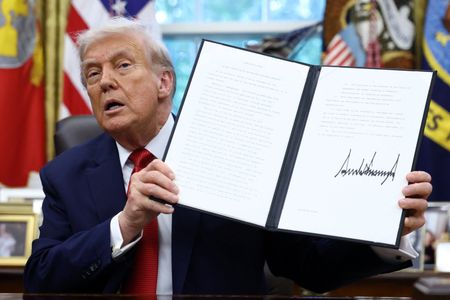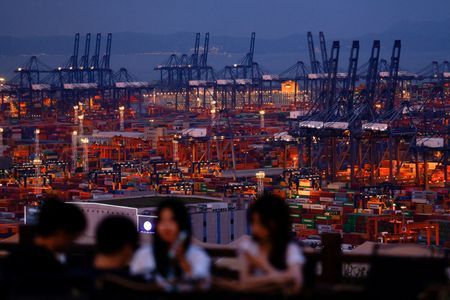By Gregor Stuart Hunter and Andrew Silver
SINGAPORE/SHANGHAI (Reuters) -Shares of pharmaceutical companies across Asia fell on Friday after U.S. President Donald Trump unveiled 100% tariffs on imports of branded drugs from October 1, unless their producers had already broken ground on U.S. manufacturing plants.
Markets had already been braced for tariffs on pharmaceutical products that Trump has long foreshadowed, but companies with big exposure to the U.S. market took a heavy hit, with Japan’s Sumitomo Pharma tumbling 4.3% and Australia’s CSL plummeting to a six-year low.
Lorraine Tan, director of equity research for Asia at Morningstar, said the final tariff rate should be lower given the pattern of negotiations so far, but the uncertainty in the near term could weigh on share prices.
Other analysts expected only a limited impact on Asian drugmakers, as many focus on generic drugs.
“This is branded drugs – it doesn’t affect generics that China and India supplies,” said Ken Peng, head of Asia investment strategy at Citi Wealth.
“The recent growth in Chinese healthcare is based on selling IP to U.S. and European pharma. The region that exports the most branded, finished product to the U.S. is Europe, Switzerland, and maybe a little bit in Japan.”
The EU has a trade deal with the U.S. to pay a 15% tariff on goods including pharmaceuticals, while Japan has an agreement that its tariff rates will not exceed others including the EU, Tokyo’s trade negotiator said on Friday.
U.S. INVESTMENT RUSH
Around 60% of U.S. pharma imports in 2024 came from the European Union, according to U.N. Comtrade data. Switzerland, which is not an EU member, was the second-biggest exporter at 9%.
Many global drugmakers have already announced multi-billion dollar investment plans in the U.S. this year to mitigate the impact of threatened tariffs on pharmaceutical imports.
They include AstraZeneca, Roche, Eli Lilly & Co, Johnson & Johnson, Novartis and Sanofi.
A source at a Taiwan-based pharmaceutical company that makes branded drugs said it could take at least five years to build and certify a new U.S. plant, without taking into account any supply chain or labour shortage issues.
“At least it’s a global tariff and not country specific, so that levels the playing field to some extent… Ultimately the biggest losers could be people who need medicine,” the source said.
ASIAN SHARES DOWN
In Japan, Otsuka Holdings dropped 3.5%, and Daiichi Sankyo lost 1.6%, although Takeda Pharmaceutical added 0.2% and Shionogi gained 1.3%.
Takeda’s biggest manufacturing presence globally is in the U.S., its CEO Christophe Weber said in July.
Japan exported $2.5 billion of pharmaceutical products to the U.S. in 2024, according to U.N. Comtrade data.
Hong Kong’s Hang Seng Biotech Index was down about 1.4%.
“The market is calling (Trump’s) bluff,” said Citi Wealth’s Peng. “We see some Asian pharma names down pretty significantly today, but if people really believe that large swathes of branded pharma will be tariffed at 100%, it wouldn’t be a 3% correction.”
India’s pharmaceutical stock index fell 2.6%, with declines among all 20 members, even though its industry is dominated by generic drugs excluded from the tariffs. Heavyweight Sun Pharmaceutical Industries was down 3.4%.
In Australia, Health Minister Mark Butler told reporters the government was working to understand the implications of the new “unfair, unjustified tariffs after 20 years of free trade.”
The country’s healthcare companies exported around A$2.1 billion ($1.37 billion) in medicines and pharmaceuticals to the U.S. last year.
CSL, the country’s largest biotechnology company, fell 2% in the afternoon after dropping by as much as 5% in early trade.
CSL said it did not expect any material impact from the tariffs given its “very significant manufacturing footprint” in the U.S.
($1 = 1.5288 Australian dollars)
(Reporting by Andrew Silver and Casey Hall in Shanghai, Jihoon Lee and Heekyong Yang in Seoul, Rae Wee, Gregor Stuart Hunter and Ankur Banerjee in Singapore, Kevin Buckland, Rocky Swift and Kentaro Okasaka in Tokyo, Rishika Sadamin in Hyderabad and Christine Chen and Scott Murdoch in Sydney; Editing by Miyoung Kim and Jamie Freed)

